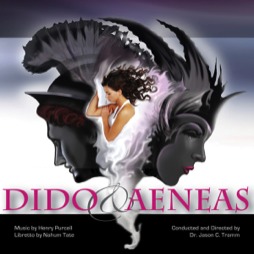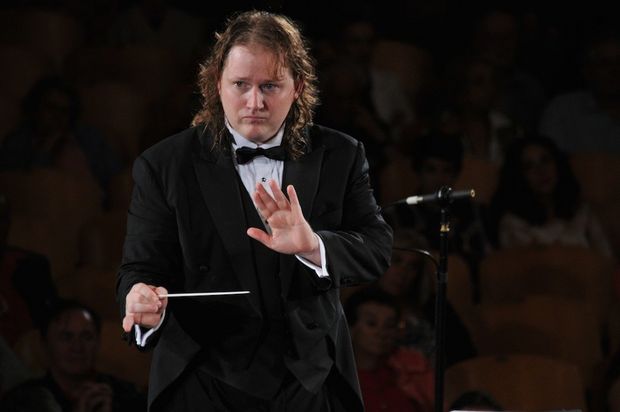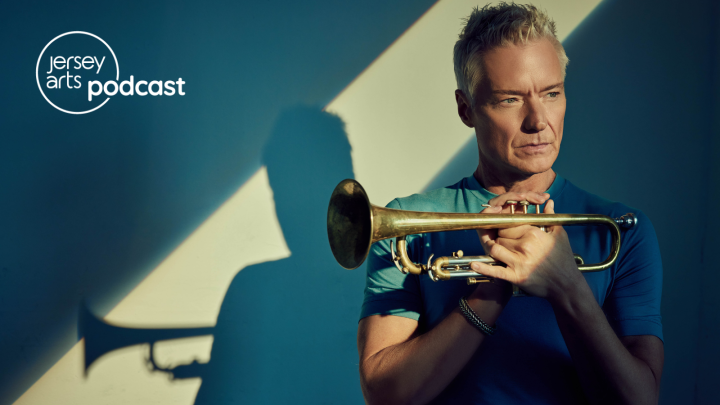MidAtlantic Opera Performs Henry Purcell’s “Dido and Aeneas”
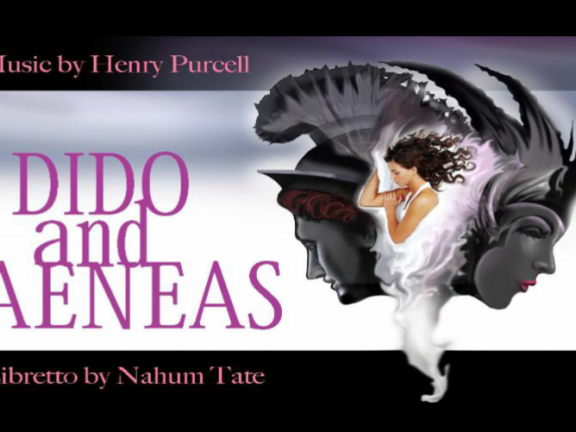
Tell me the truth. When you think of “opera,” what comes to mind is probably Verdi and Puccini, champagne toasts and love duets sung while the soprano is on her deathbed, dying from consumption. I bet you probably didn’t know that opera first originated at the very end of the 16th century (in Italy, of course!) and that a number of productions of 17th century operas are still being mounted today. And while opera may have its origins in Italy, there were a bunch of non-Italian opera composers (even before Mozart).
Skeptical, perhaps? Then I enter into evidence Henry Purcelland his opera “Dido and Aeneas,” first performed in 1688 – less than 100 years after the very first opera premiered in Florence.
And as luck would have it, you have an opportunity to see this early opera later this week! “Dido and Aeneas” will be performed by MidAtlantic Opera (based in Morristown) in partnership with Seton Hall University on May 1-4 at the South Orange Performing Arts Center (SOPAC).
“Dido and Aeneas” was actually Purcell’s first opera, as well as one of his most important, and one of the first operas ever composed by an English composer.
The storyline of the opera is based on Book IV of Virgil’s “Aeneid” – the famous tale of Aeneas’ affair with the Queen of Carthage on his way to founding Rome. I’m sure you probably remember reading it in school, but just in case you’ve forgotten, I’ll remind you! It involves the love of Dido, Queen of Carthage, for the Trojan hero, Aeneas, and her sorrow and fury when he abandons her.
You may remember that Aeneas, the son of Venus, flees his home after it is sacked by the Greeks. Aeneas and his crew are shipwrecked in Carthage, where the legendary Queen Dido is mourning her dead husband to whom she has sworn eternal fidelity.
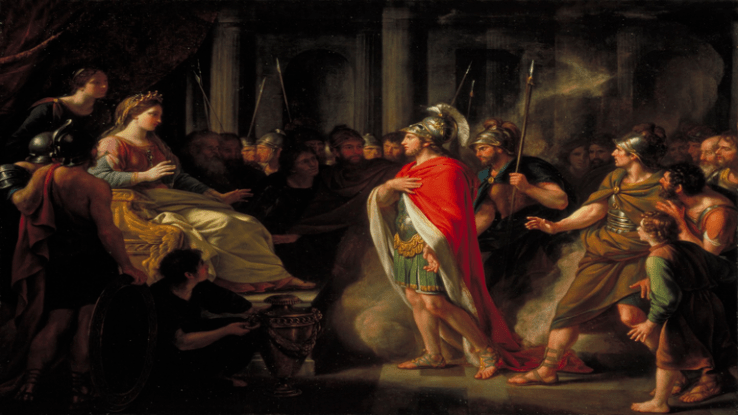
As the opera begins, Dido, Queen of Carthage, is in her court with her attendants and is very sad. Belinda, her sister and handmaiden, believes that the Trojan, Aeneas, is the source of her sister’s grief. Belinda suggests that Dido should marry him, but Dido fears that her love will make her a weak queen. Aeneas appears and eventually manages to convince Dido to marry him.
In the next act, the Sorceress is plotting the destruction of Carthage and its queen (just once, can’t we have a friendly, benevolent sorceress?). She plans to send her “trusted elf,” disguised as Mercury—someone to whom Aeneas will listen—to tempt him to leave Dido and sail to Italy. If that happened, Dido would be heartbroken and would die. The chorus laugh and they all decide to prepare a spell to conjure a storm to direct at Dido.
Meanwhile, Dido and Aeneas, accompanied by their entourages, head into the forest for a hunt. They stop in a grove to admire its beauty. But then the Sorceress’ spell brings a thunderclap, announcing a coming rainstorm. Everyone begins to hurry back to the palace, except for Aeneas, who is stopped by the Sorceress’ disguised elf. The elf tells Aeneas that he needs to go create a new Troy on Latin soil. Though heartbroken, Aeneas prepares to depart Carthage.
The Trojans head to the harbor, getting ready to sail away. The sailors sing, when the Sorceress appears and sings of her plans to destroy Aeneas on the ocean.
At the palace, Dido and her sister Belinda are shocked at Aeneas’ disappearance. Aeneas returns and Dido asks him why he is leaving. Aeneas says that he will defy the gods and stay behind, but Dido is really mad that he ever thought of leaving her in the first place. (Aeneas really can’t win here, can he?) Dido forces him to leave and states “Death must come when he is gone.” True to her word, Dido kills herself and the opera is over.
MidAtlantic Opera’s production of “Dido and Aeneas” is fully staged, sung in English and conducted and stage directed by the company’s Artistic Direcor, Jason C. Tramm. The role of Dido will be sung by mezzo-soprano Janara Kellerman (New Jersey Symphony Orchestra, Indianapolis Opera); Aeneas will be sung by baritone Charles Schneider (Washington National Opera, The Princeton Festival) and the Sorceress will be sung by mezzo-soprano Elizabeth Grohowski (Metropolitan Opera, Lyric Opera of Chicago, San Francisco Opera).
Tramm is also the Director of Choral Activities at Seton Hall University, the partner in this production. And that close relationship between MidAtlantic Opera and Seton Hall University means that SHU students will perform supporting roles in Dido and Aeneas and will also form the large ensemble.
“It is exciting to present a production that combines established operatic performers with talented student artists,” said Tramm. “The result is inspirational for both and is an educational experience of the highest caliber. This production marks Seton Hall's first fully staged operatic production in recent history and will be one to remember."
Now, I’ll admit that “Dido and Aeneas” doesn’t have a series of arias that you already know how to hum from having heard them in tons of movies, pasta commercials and Bugs Bunny cartoons. But over the last 10 years or so–which is just a blink of an eye in the opera world–we’re seeing a real revival of Baroque operas, especially from an exciting dance perspective (see any of Mark Morris’ forays into opera directing, for example).
And Dido’s death aria–officially “When I am laid in earth” but usually just called “Dido’s Lament”–makes solo appearances outside the opera, such as in the HBO miniseries “Band of Brothers” and at the annual Armistice Day ceremonies at Whitehall in London.
So give it a try–and really, it’s only an hour–and I think you’ll hear why Baroque opera is making such a comeback.
The Details
Purcell’s "Dido and Aeneas" will be performed by MidAtlantic Opera, in partnership with Seton Hall University from Thursday-Saturday, May 1-3 at 8:00 p.m. and on Sunday, May 4 at 2:00 p.m. The performances take place at the South Orange Performing Arts Center: 1 SOPAC Way, South Orange, NJ. For tickets, call 973-313-ARTS (2787) or visit www.sopacnow.org. General admission is $24, seniors and SHU Alumni are $14, other students are $7 and Seton Hall students are free.
“Dido and Aeneas” will be performed in English and the running time is approximately one hour.

